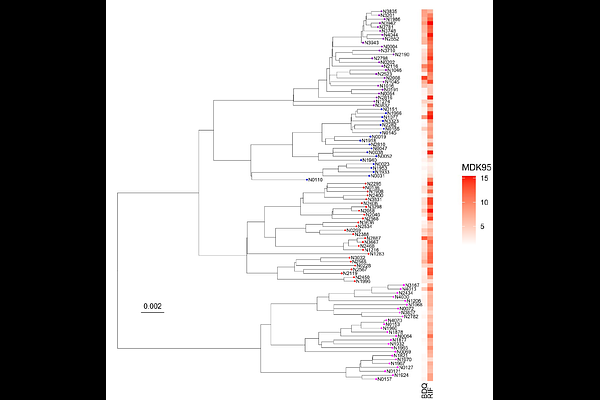Variability in intrinsic drug tolerance in Mycobacterium tuberculosis corresponds with phylogenetic lineage

Variability in intrinsic drug tolerance in Mycobacterium tuberculosis corresponds with phylogenetic lineage
March, V. F. A.; Zwyer, M.; Loiseau, C.; Brites, D.; Goig, G. A.; Bouaouina, S.; Dötsch, A.; Reinhardt, M.; Kalkan, S.; Gagneux, S.; Borrell Farnov, S.
AbstractDrug tolerance allows bacteria to survive extended exposure to bactericidal drugs and is thought to play a role in drug resistance evolution. In Mycobacterium tuberculosis (Mtb), the causative agent of tuberculosis (TB), multidrug resistant TB (MDR-TB) outbreaks are frequently caused by strains belonging to two phylogenetic lineages of the human-adapted strains of the Mtb Complex, namely lineages (L) 2 and L4. We hypothesized that members of L2 and L4 are more intrinsically drug tolerant, and as such, more readily evolve drug resistance. To explore this, we devised a high throughput in vitro assay to measure drug tolerance in Mtb. We selected a cohort of strains representative of the globally most frequent lineages L1-L4. We measured tolerance to rifampicin and bedaquiline and found L3 and L4 strains to have higher tolerance compared to L1 and L2 strains. In addition, phylogenetically closely related strains exhibited similar levels of tolerance, suggesting that tolerance is heritable. Finally, we explored genes previously reported to be associated with tolerance in Mtb and found significant enrichment in mutations in genes involved in cell wall and cell processes, intermediary metabolism and respiration, as well as lipid metabolism in high-tolerance strains.